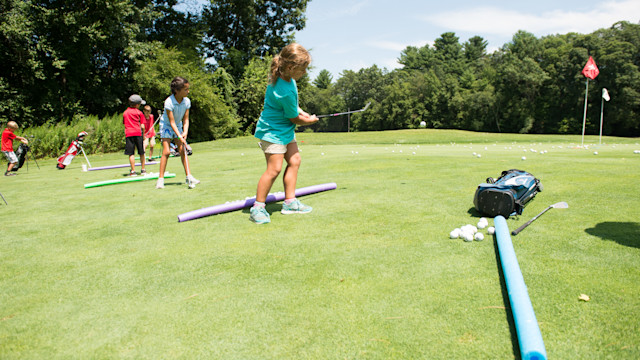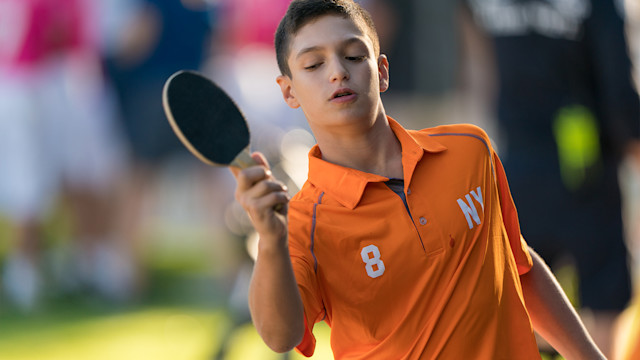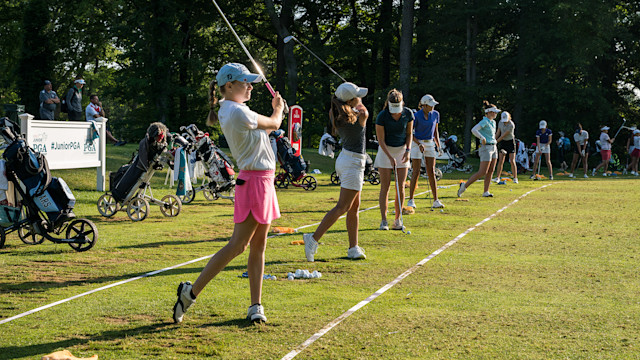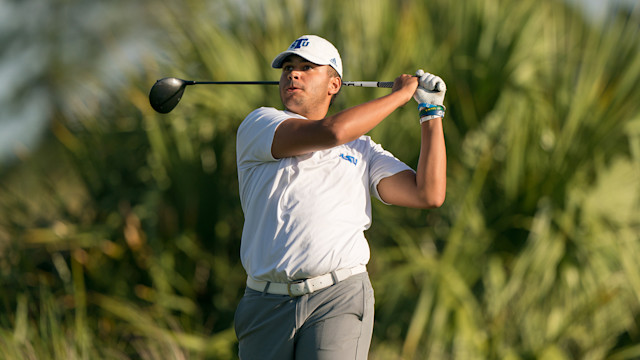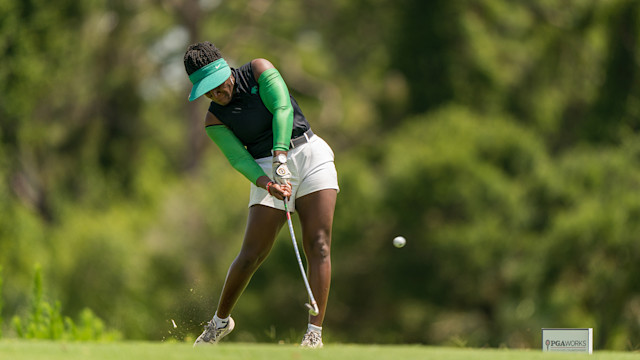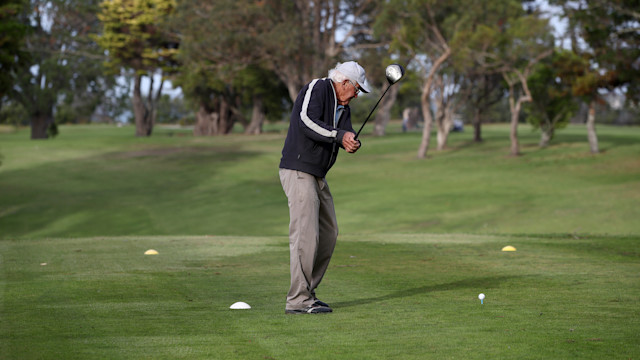From the PGA
American Development Model: Learn to Play
Published on
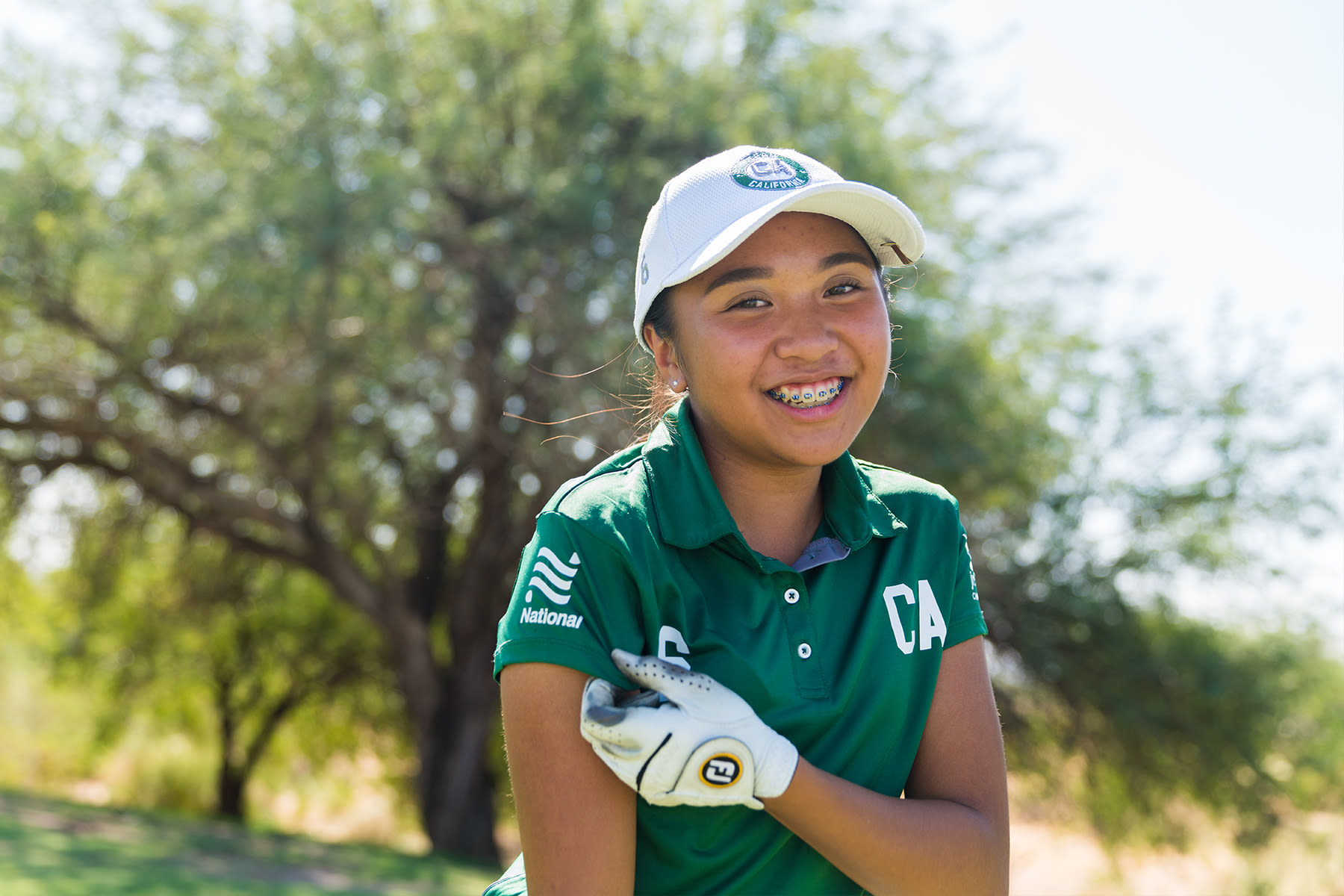
Learn to Play
Age (Please note: Ages are guidelines, not restrictions)
Boys 9-12
Girls 8-11
Primary focus: Continue to develop fundamental movement skills while beginning to develop fundamental golf skills.
Competition level: Focus on fun competition at the club, league or junior tour level. This stage is about progressing in skill and not competition results.
What the coach recommends: For Chris Knobloch, a kid golf specialist who runs Junior Golf 365 in Peachtree City, Georgia, this age group represents the bulk of his participants in after-school programs. It’s a time when most kids are involved in some kind of activity every day of the week.
One of the most important things to remember at this age, Knobloch said, is that juniors play from the correct tees. The forward yardage markers are often too long. His 8-year-old group, for example, starts from 50 yards. Find a marker on the course in the fairway and make it fun.
Equipment remains a priority. Clubs should be selected based on height and not age. The weight of the club is as important as the length.
Mix up the time between the course and the practice tee. The ADM recommends no more than five hours of practice per week.
Find a game that’s fun for that age, not necessarily fun for the parent or the coach. Telling a kid to make three out of five putts might not be too appealing.
Knobloch, for example, likes to use a deck of cards to randomly select different types of shots his students can hit.
Coach says: “I don’t have a problem with a kid coming out every day. I wouldn’t do it every day for four, six, eight hours.
“I do have a problem if you’re making the kid practice and they don’t want to … going through the motions without really getting good.”
Boys 9-12
Girls 8-11
Primary focus: Continue to develop fundamental movement skills while beginning to develop fundamental golf skills.
Competition level: Focus on fun competition at the club, league or junior tour level. This stage is about progressing in skill and not competition results.
What the coach recommends: For Chris Knobloch, a kid golf specialist who runs Junior Golf 365 in Peachtree City, Georgia, this age group represents the bulk of his participants in after-school programs. It’s a time when most kids are involved in some kind of activity every day of the week.
One of the most important things to remember at this age, Knobloch said, is that juniors play from the correct tees. The forward yardage markers are often too long. His 8-year-old group, for example, starts from 50 yards. Find a marker on the course in the fairway and make it fun.
Equipment remains a priority. Clubs should be selected based on height and not age. The weight of the club is as important as the length.
Mix up the time between the course and the practice tee. The ADM recommends no more than five hours of practice per week.
Find a game that’s fun for that age, not necessarily fun for the parent or the coach. Telling a kid to make three out of five putts might not be too appealing.
Knobloch, for example, likes to use a deck of cards to randomly select different types of shots his students can hit.
Coach says: “I don’t have a problem with a kid coming out every day. I wouldn’t do it every day for four, six, eight hours.
“I do have a problem if you’re making the kid practice and they don’t want to … going through the motions without really getting good.”
Athletic skills: Agility, footwork, dynamic balance, complex coordination, speed of coordination, strength, flexibility.
Technical skills: Continued progress in putting, chipping and full swing. Introduce bunker pay, green reading and pitching.
Psychological Development: Love of the sport, coach-ability, concentration, problem solving, confidence, good choices, fairness, responsibility.
Social Development: Learning to compete against other players. Learning the values of golf. Both independence and team work. Self-awareness.
Practice: Randomized practice for 30-60 minute sessions. Promote practice with other juniors in activities and fun games. Including on course practice for the fun aspect. No more than 1 to 5 hours a week.
Competition: Fun competition can start to be introduced at this stage (junior club events, local league, interclub events or junior tours). 9 holes to start with progression to 18.
Equipment: At a minimum: putter, wedge, 7 iron, 9 iron, hybrid, driver.
Where to play: When ready, 1,000-yard par 3 courses. 9 holes.
Male: 18 holes up to 5,500 yards / Female: 18 holes up to 4,750 yards (not these are maximum recommendations).
